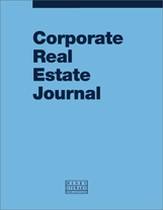Work experience from home : Hybrid work and the future of distributed work locations — a comparative empirical analysis between the US and Germany
Abstract
Already two decades ago it was claimed that ‘work is no longer a place — it is an activity that can be conducted anywhere’. This quote is equally true and false. While COVID-19 demonstrated in a large-scale experiment that a significant proportion of work activities can be performed flexibly and in the home office, the importance of place has come to the forefront of employees’ minds. Although work is not necessarily tied to a place, the location determines the efficiency of work performance to a significant extent. This paper shows how work satisfaction and productivity depend on space and elaborates on future distributed work locations and spatial split where the different activities will ideally be performed. Future work will be multilocal, divided between the ‘first’, ‘second’ and ‘third’ place. Whereas the first place — the home office — is ideal for concentrated tasks with high work autonomy, the second place — the corporate office — becomes more and more a place for social interactions and face-to-face tasks. If employees have no ideal work conditions at home, third places — such as coworking spaces — can serve as the ‘first’ place for employees and take over its function, but third places can also serve as a substitute for the second place. Empirical data shows that these alternative work environments will gain traction in the post-COVID world, especially in the US.
The full article is available to subscribers to the journal.
Author's Biography
Felix Gauger MSc, is a research assistant and doctoral candidate in the Department of Real Estate and Construction Management at the Technical University of Darmstadt. He is an industrial engineer and researches working environments, particularly coworking spaces as the physical organisation of work. His research interests lie also in the area of start-ups and especially in PropTechs. Prior to becoming a research assistant, he worked for a strategic business consultancy and has managed big digitisation projects.
Yassien Bachtal MSc, is a research assistant and doctoral candidate in the Department of Real Estate and Construction Management at the Technical University of Darmstadt. He is an industrial engineer and researches working from home, the multilocality of work, and the impact of real estate factors on work success in different workplaces.
Andreas Pfnür PhD, is professor of real estate economics and construction management at the Technical University of Darmstadt. His research focuses on economic issues and the impact of corporate real estate, and how it affects users. He has lectured at the Technical University of Darmstadt since 2003 and has been awarded a FRICS for his significant contribution to the professionalisation of the real estate industry. He is an active volunteer for the ZIA German Property Federation and the Society of Property Researchers, Germany.
